Support strong Canadian climate journalism for 2025
The federal government says it's turning over a new leaf on reconciliation as it launches nationwide consultations on crafting legislation that recognizes Indigenous rights.
In an impassioned speech in the House of Commons, Prime Minister Justin Trudeau said the upcoming framework, once drafted, will "breathe new life" into Section 35 of Canada's constitution, which enshrines the rights and title of Aboriginal peoples.
Canada has not enjoyed "sustained or significant" progress in that section's implementation to date, he told Parliamentarians on Wednesday, and the country has a responsibility "to do better, to be better."
"While there has been success, progress has not been sustained or significant," said Trudeau, addressing the "systemic racism" that underlies the reality of Indigenous people across the country. "Until we get this part right, we won't have lasting success."
Trudeau’s new commitment comes while the issue of Indigenous rights and consultation takes centre stage in the approval of major industrial energy projects, like Kinder Morgan's Trans Mountain oil pipeline expansion project and the Site C hydroelectric dam, both in Western Canada.
Consultations from coast to coast
Beginning immediately, Crown-Indigenous Relations Minister Carolyn Bennett will lead consultations from coast to coast with Indigenous decision-makers, provincial governments and members of the public, to determine what a new framework would look like.
Trudeau said it would include broad reforms to Canada's criminal justice system, including changes to the ways juries are selected. Recognition of Indigenous rights, he added, will guide every future federal government interaction with First Nations, Métis and Inuit peoples — vowing that this extra consultation won't just be "another step."
The framework could repeal legislation and policies, he explained, that are built to serve colonial interests. In the long-term future, his ministers confirmed during a Wednesday press conference, that could include the highly-controversial Indian Act and an unprecedented move towards "consent-based" decision-making.
"This is a transformative piece where we become true partners," Justice Minister Jody Wilson-Raybould told reporters, flanked by Bennett, Indigenous Services Minister Jane Philpott and Minister of Families, Children and Social Development Jean-Yves Duclos.
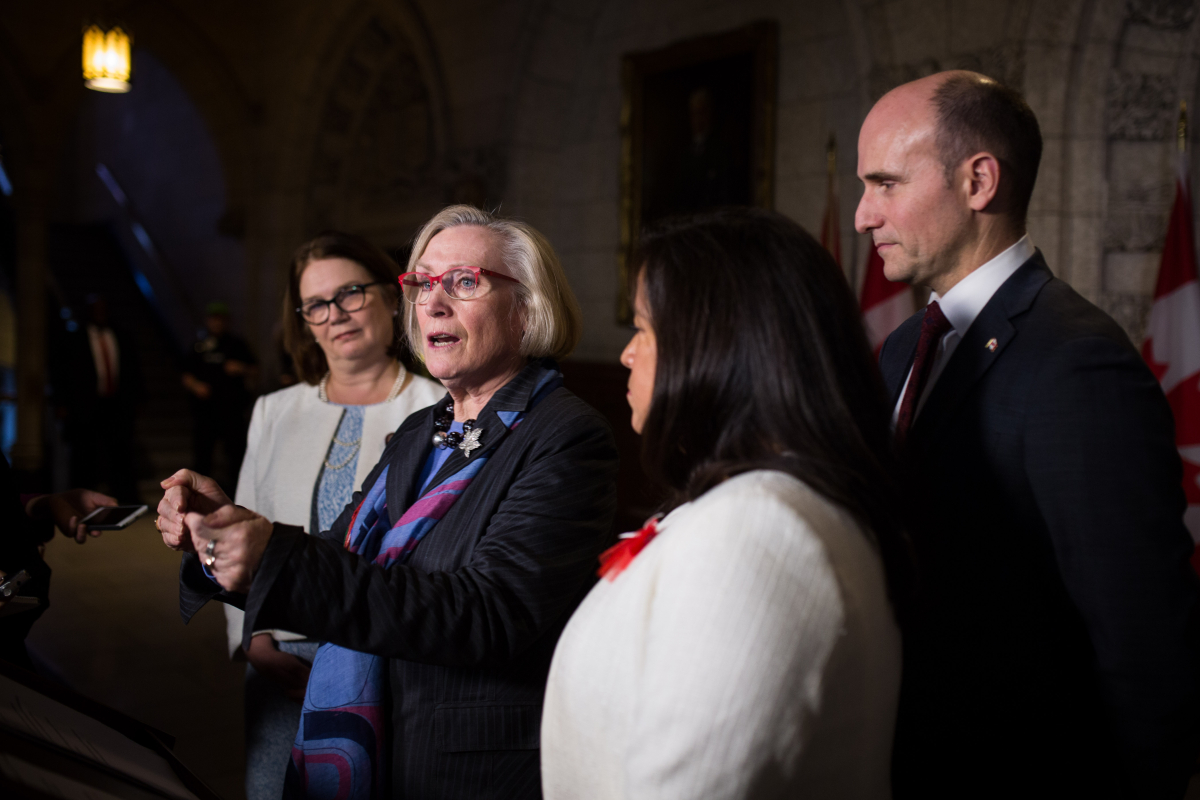
Framework unlikely to be lengthy, complicated
Based on conversations with Indigenous partners so far, Bennett added, the framework would not likely be complicated or overburdened with details. Those partners want the process to be "less fraught with conflict" that previous ones, and more about setting up guidelines for collaboration and consultation moving forward.
"The reason that we have talked about recognition of rights and implementation is that the Inuit communities, the self-governing nations and the modern treaties already have their rights recognized," she explained.
"Where their concern is, is how do we demonstrate that we're truly implementing those rights in a way with a fiduciary responsibility and the kinds of things that were certain under the Indian Act, but now we're providing a new framework in which people can feel confident that their rights will be recognized and implemented."
Asked by National Observer how the government could claim that without such a framework, it could still claim all its decisions to date have been made with respect for Indigenous rights, Wilson-Raybould didn't answer directly.
She said the government has been busy "getting its internal house in order." She outlined a number of relationship-building efforts the government has made so far, including the adoption of the United Nations Declaration of the Rights of Indigenous Peoples.
Bennet chimed in, and explained that in the past, in order to begin negotiations with a First Nation or Indigenous group, Parliamentarians would have to approach cabinet with a mandate and cost estimate, return to the community and negotiate within that mandate. Over the last two years, she said the government has been "testing" a new approach, where they go with a "blank piece of paper" instead.
"As you heard, in the past government, people would say, 'This is the mandate we have, take it or leave it, see you in court,'" she said.
"I think what we're saying today is, 'Take it or leave it, see you in court,' is no longer there; that this is a new way we recognize their rights, they don't have to claim them or prove them. We recognize them and then we work with them to sort out how they want to exercise those rights in a far more respectful approach than the paternalism that actually was the way these negotiations were done in the past."

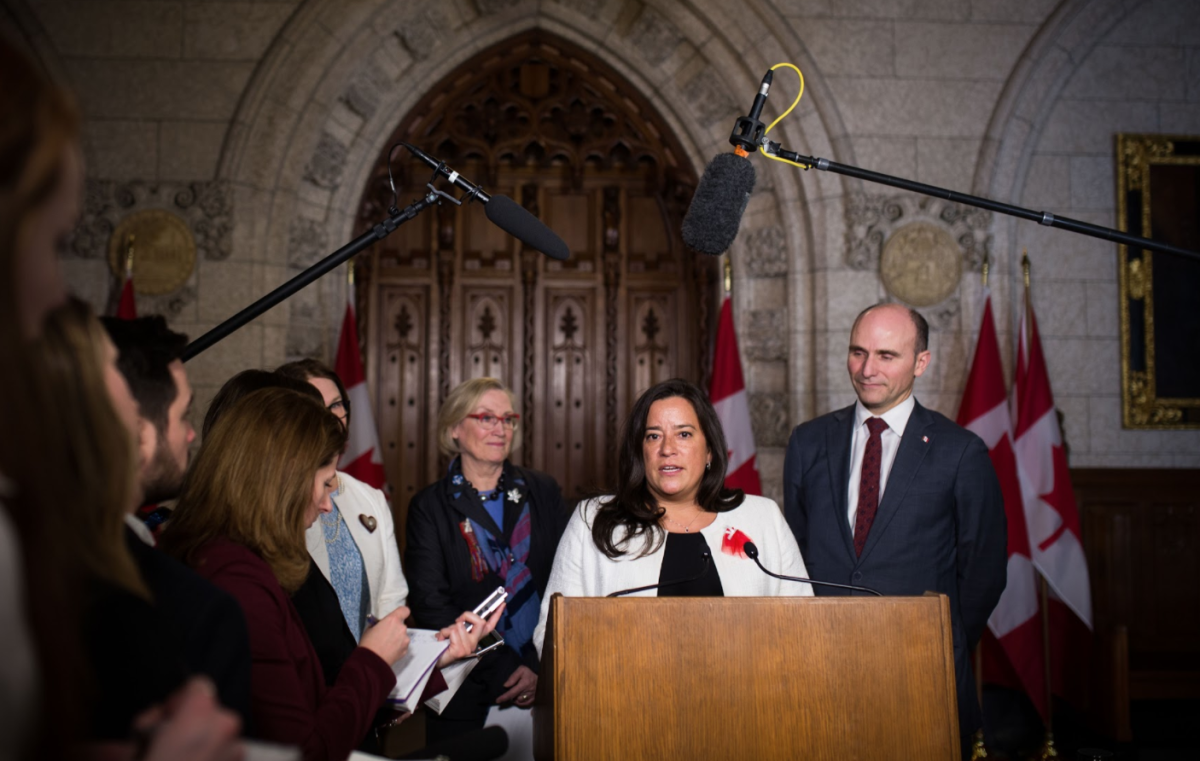

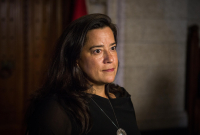
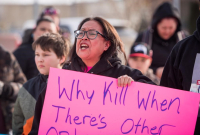
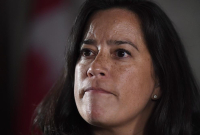
Comments
If anyone thinks we can craft a new relationship with indigenous people while continuing to stick our unsustainable mega projects on their land....without their consent....we are naive. Flooding reserve land for a dam many experts call a colossal waste of taxpayer money...and a climate catastrophe doesn't suggest to me a government intent on repairing old colonial relationships.
Except perhaps as a talking point. Like the superficial acknowlegements at every progressive meeting...reminding all in attendence that we stand on stolen land. Though the speakers never say 'stolen' and give no indication that they intend any kind of restitution......to me, it sounds like rubbing salt in old wounds...to keep telling native people we know we're on their land...but oh well...an apology will make it right.
A bunch of sweet talking cheapskates.....is what I've come to think.